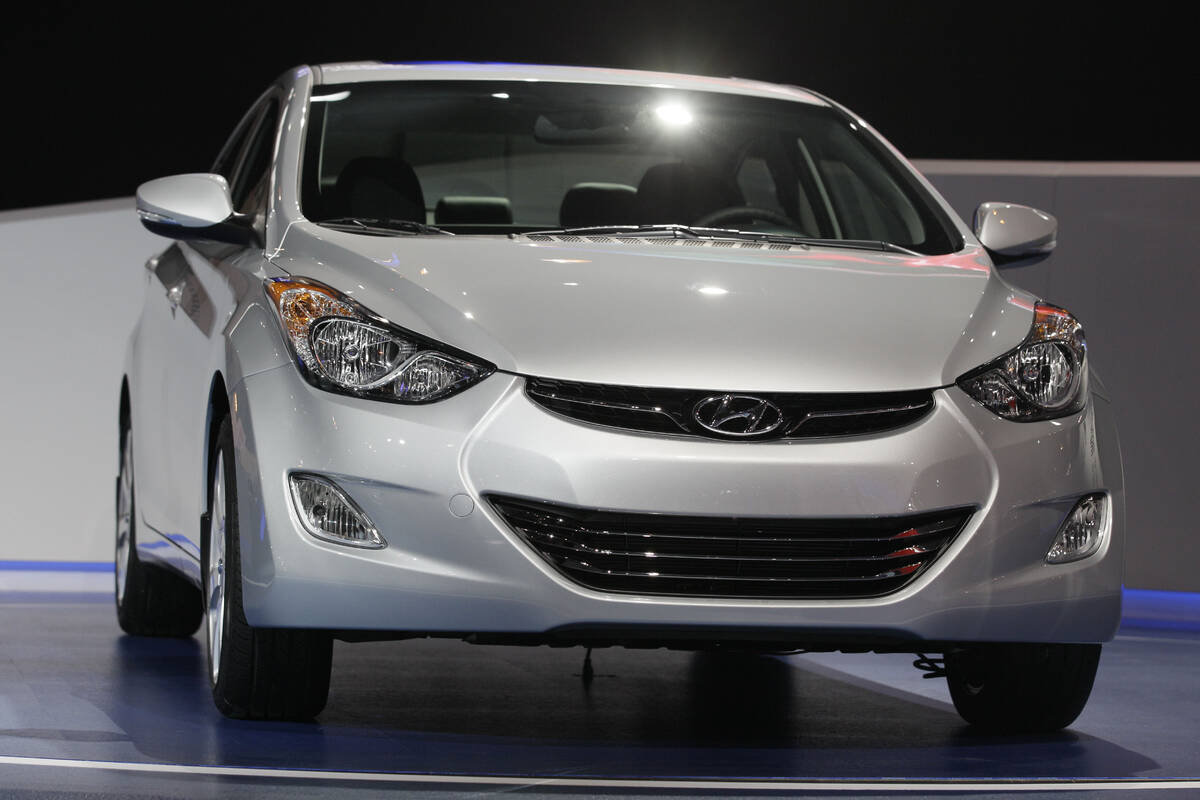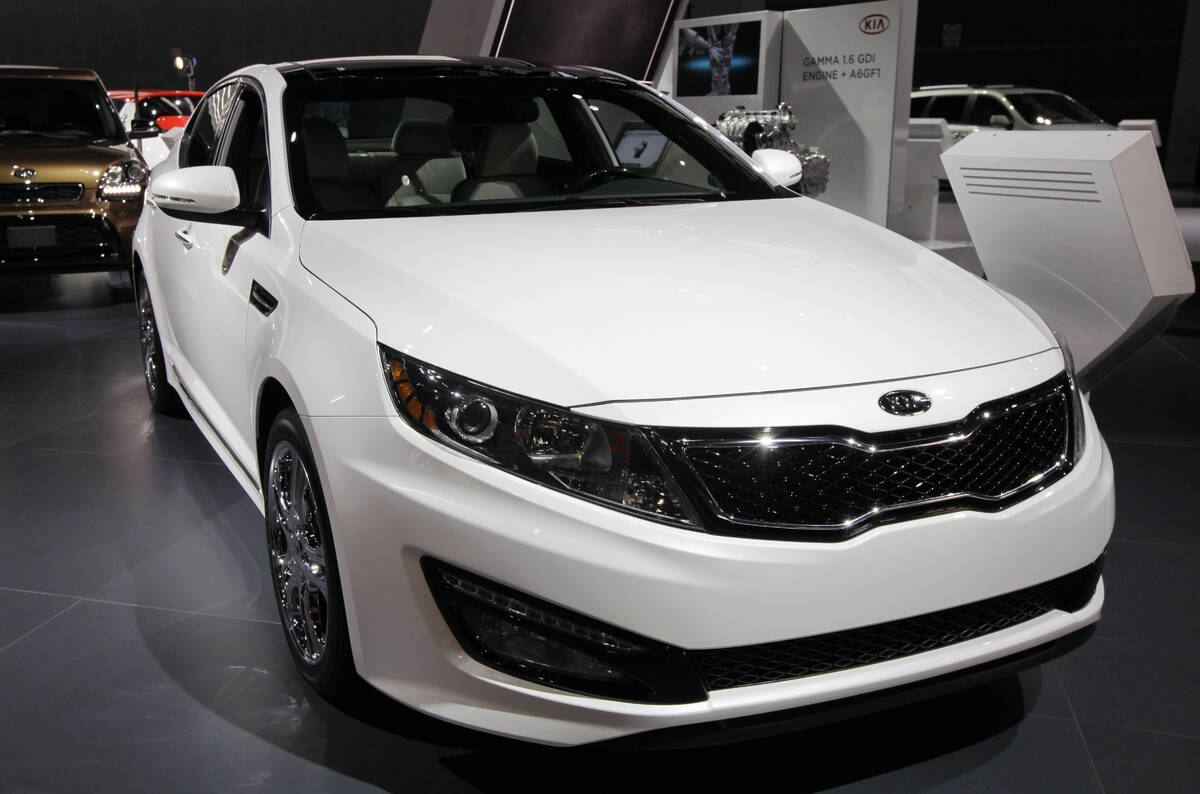Millions of recalled Hyundai and Kia vehicles with dangerous defect remain on road
DETROIT — In September, Hyundai and Kia issued a recall of 3.4 million vehicles in the United States with an ominous warning: The vehicles should be parked outdoors and away from buildings because they risked catching fire, with the engines on or off.
Six months later, most of those autos remain on the road — unrepaired — putting owners, their families and potentially others in danger of fires that could spread to garages, houses or other vehicles.
Hyundai and Kia have acknowledged in documents that there’s little hope of repairing most of the vehicles until June or later, roughly nine months after they announced the recalls. (Hyundai owns part of Kia, though the two companies operate independently.)
The companies attributed the delays, in part, to the huge number of vehicles involved. The fires, they say, have occurred when brake fluid leaked onto circuit boards of antilock braking systems, triggering an electrical short and igniting the fluid. They say they’ve been unable to obtain enough parts — fuses that reduce the boards’ electrical currents — to fix most of the affected vehicles. Among them are some of their top-selling models for the 2010 through 2017 years, including Hyundai’s Santa Fe and Kia’s Sportage.
The companies say owners should contact dealers if they see dashboard warning lights or smell something burning. In the meantime, both say that despite ongoing risks, the cars remain safe to drive.
When they announced the recalls in September, the automakers reported that the defect had caused 56 vehicle fires and “thermal incidents,” which include burning, melting and smoking. No injuries were reported.
Safety advocates complain that repairs are taking longer than recall fixes normally do. Typically, repairs begin in 10 weeks or less, though some can take longer if automakers cannot quickly determine a cause. Advocates note that if too much brake fluid leaks, it could impair stopping ability.
The delayed repairs mark the latest in a series of recalls involving engine fires on Hyundai and Kia vehicles that have bedeviled the automakers. All told, 13 million vehicles have been recalled for engine problems since 2010.
With the current recall, safety advocates say they’re mystified about why it’s taking so long to obtain simple fuses. Some question whether the companies are trying to save money by not fixing the fluid leaks.
“It looks like it’s a cheap fix instead of repairing the entire antilock brake system,” said Michael Brooks, executive director of the nonprofit Center for Auto Safety.
Advocates also ask why the National Highway Traffic Safety Administration hasn’t forced the companies to repair the leaks. The agency said it’s monitoring the effectiveness of the recalls and “is working with the automakers to ensure the highest level of safety.”
Hyundai said the repairs require an intricate fuse assembly, with new covers and labels. Just one fuse will be added per vehicle, but both automakers said many types of new fuses are needed to cover all models.
“We are working closely with multiple suppliers, emphasizing the high priority of the recall, and ensuring quality for the replacement fuses,” Hyundai’s statement said. Kia also said it’s working to speed up fuse production.
A schedule that Hyundai filed with the government shows that owners won’t start receiving letters advising them to take their cars in for repairs until April 22. Most won’t get the letters until May or June — eight or nine months after the recalls were announced. Some Kia owners won’t get those letters until late June, documents say.
Both companies also said dealers will fix brake fluid leaks found during inspections. Fluid can leak if O-ring seals lose strength when exposed to moisture or dirt in the fluid, according to Hyundai documents filed with NHTSA. If the brake fluid level drops significantly, Hyundai said, the driver would see a warning light.
Since September, more than 500 owners filed complaints with NHTSA accusing the automakers of taking too long to make repairs. The fires have continued while owners await repairs; at least five complainants reported engine compartment fires.
Several complainants said they want NHTSA to make the companies provide loaner cars or speed up repairs. Hyundai told dealers last year that they should provide loaners. Kia said it, too, would provide loaners.
Some were confused by Hyundai statements that the recalled vehicles can be driven even though they can catch fire while the engines are running. “This safety recall sounds urgent and incredibly dangerous,” one owner of a 2012 Hyundai Accent from Burbank, California, wrote in a complaint to NHTSA in December.
Both companies said that while fires are rare, if they do happen, owners would smell smoke or see warning lights. The warnings would “allow for a safe exit from the vehicle,” Kia’s statement said.
But Brooks of the Center for Auto Safety argues it’s irresponsible to assure owners the vehicles are safe when the companies know that fires are possible. If smoke or warning lights appear, he said, the automakers have no way of predicting how long it would take for occupants to escape.
“There are a lot of (fire) situations where consumers simply weren’t aware,” Brooks said. “That is going to compromise the time they have to escape the vehicle if there’s a fire.”
He urged every owner of the recalled vehicles to seek a loaner car.
Ellen Maisano of Gouldsboro, Pennsylvania, said she parked her 2011 Kia Soul in her yard for four months until trading it in last January out of frustration with the slow repairs.
“I don’t want to be on the highway and catch on fire,” said Maisano. She also didn’t want to leave the Soul near other vehicles at work, and she feared parking it in her garage. So she decided to pony up $23,000 for a used Honda HR-V, with a $410 monthly payment.
Maisano also said she was worried, in light of a national epidemic of Hyundai and Kia thefts, about her Kia being stolen when left outdoors. Many vehicles being recalled for potential fires also are at risk of being stolen if parked outside because they lack theft-deterrent devices.























